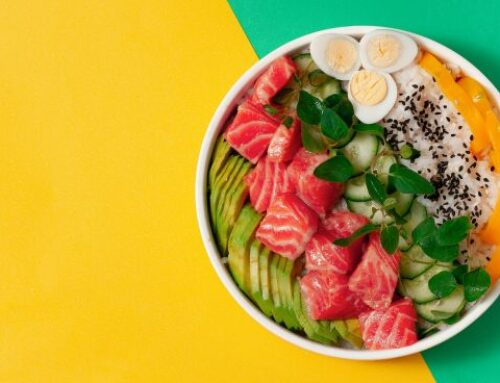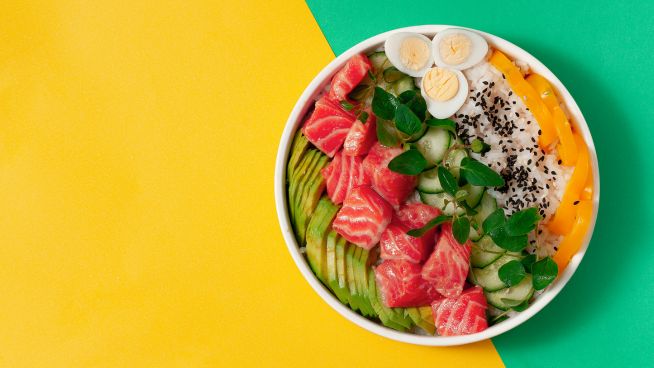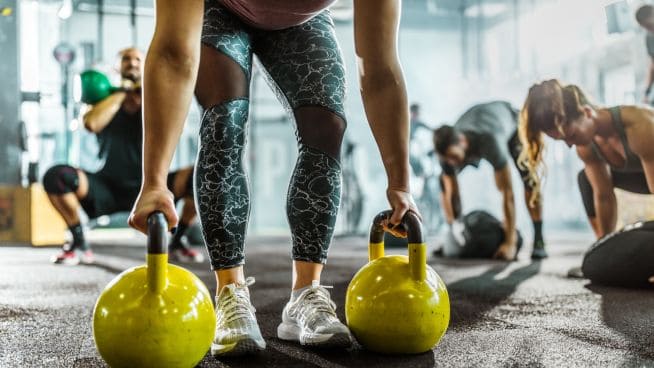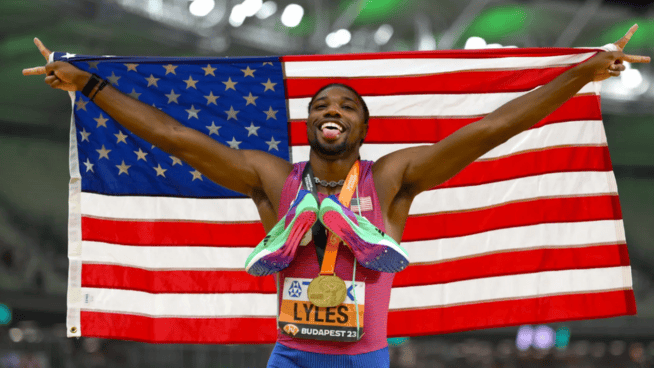The 5 Nutrition Habits of Explosive Basketball Players
Basketball players: One of the major factors that determine whether you’ll become a good player or a great one is your diet.
The proof is in the physiques and performance of today’s top NBA stars. These athletes have muscular builds with very low body fat percentages—body structures that allow them to be explosive on the court. (See The Easy Basketball Diet.)
It’s difficult to build muscle and stay under 10% body fat. It’s actually impossible unless you have both a solid diet and weightlifting plan.
From my experience, I have noticed a trend in the way these athletes eat. My athletes, who develop amazing physiques, all share the following five superior dietary habits.
They eat protein at every meal
Protein is the most important macronutrient you can eat when trying to achieve a lean physique. It builds muscle while increasing your metabolism so you can continually burn fat. You are not eating a real meal if your plate doesn’t have at least 20 grams of protein. (Read Protein and Your Diet.)
- Aim to eat 0.75 to 1 gram of protein per pound of body weight.
- The majority of your intake should be from real protein sources (e.g., chicken, fish, grass-fed beef, eggs, turkey, quinoa, Greek yogurt and mixed nuts).
- Within 30 minutes after a workout, drink a protein shake or chocolate milk to quickly provide a flow of amino acids to your muscles.
They tailor carbohydrate intake to daily workout demands
Every day you should consume a high level of protein and healthy fats. But your carbohydrate intake should change with your day’s activity.
Think about your body as a Ferrari. It requires a lot of fuel to drive a Ferrari around all day. But if the Ferrari sits in the garage, it won’t need fuel.
Carbohydrates provide energy (e.g., fuel) for your body. So if you have a scheduled weight training, sprints or practice, you’ll need a lot of carbohydrates. But on light or off-days, you require fewer carbs. You won’t use the extra fuel and it may be stored as fat.
- Stay away from simple carbohydrates throughout the day (e.g., candy, sugary drinks and white bread). Stick to complex carbohydrates (e.g., oatmeal, sweet potatoes, fruits, vegetables and legumes)
- 45 to 90 minutes prior to a demanding workout, consume a small amount of complex, slow digesting carbohydrates.
- After hard workouts consume at least a 2:1 ratio of carbohydrates to protein. Generally this will be around 40 grams of carbs and 20 grams of protein.
- Sway toward simple, fast digesting carbs immediately after workouts to spike insulin and increase anabolism.
- After light workouts, consume a 1:1 ratio of carbohydrates to protein.
They don’t rely on supplements
To get lean, you need to eat real, nutrient-dense foods. The base of your diet should never be supplements. That is a costly mistake. If your diet is broken, no amount of supplementation will fix it.
- Use protein powder only in your post-workout shakes.
- In my opinion, three essential supplements belong in your kitchen: fish oil, vitamin D and protein powder.
- You may take a multivitamin to ensure you don’t have any vitamin and mineral deficiencies.
They eat breakfast every day
Lean athletes eat breakfast every day. Numerous studies show that eating a high protein breakfast helps maintain a lower body fat percentage. (See Fuel for Success: Add Protein to Your Breakfast.)
When you wake up, your body is in a fasted state and your muscles need nutrients. Going long periods of time without eating puts your body in fat storage mode. Explosive athletes cannot afford to strip muscle and gain fat.
- Eat at least 20 grams of protein for breakfast.
- Stay away from sugary cereals.
- Consume a combination of protein, carbohydrates and fat.
- Hydrate well during breakfast.
An example of a great breakfast
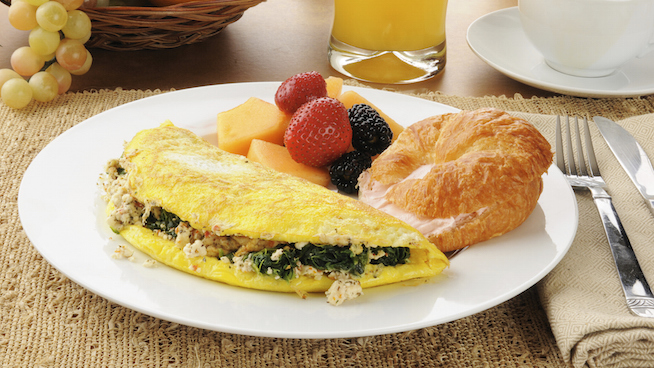
- Egg omelet with turkey, cheese, onions and bell peppers
- One cup of Greek yogurt with blueberries
- One slice of bread with almond butter
- Two glasses of water or green tea
They develop food preparation strategies
None of the above information will work unless you develop food preparation strategies.
People turn to fast food because they don’t have time to prepare high-quality meals throughout the day. Here are a couple of great food prep strategies:
- Use the 3/1 split. Many of my athletes enjoy this because of its simplicity. For every three hours you spend working out in the gym, you must spend one hour doing kitchen food prep. It’s not optional. The one hour spent in the kitchen should be thought of as a workout. You can prepare enough meals to last you for the next three days. Pair together full meals in individual containers so you can always grab a healthy meal on the go.
- Pack plastic bags full of almonds or trail mix for snacks.
- If you have trouble waking up early enough to cook breakfast, cook hard-boiled eggs for an instant high protein breakfast. Separate servings of oats into plastic bags so you have them ready to go.
- Go grocery shopping every three days.
READ MORE:
RECOMMENDED FOR YOU
MOST POPULAR
The 5 Nutrition Habits of Explosive Basketball Players
Basketball players: One of the major factors that determine whether you’ll become a good player or a great one is your diet.
The proof is in the physiques and performance of today’s top NBA stars. These athletes have muscular builds with very low body fat percentages—body structures that allow them to be explosive on the court. (See The Easy Basketball Diet.)
It’s difficult to build muscle and stay under 10% body fat. It’s actually impossible unless you have both a solid diet and weightlifting plan.
From my experience, I have noticed a trend in the way these athletes eat. My athletes, who develop amazing physiques, all share the following five superior dietary habits.
They eat protein at every meal
Protein is the most important macronutrient you can eat when trying to achieve a lean physique. It builds muscle while increasing your metabolism so you can continually burn fat. You are not eating a real meal if your plate doesn’t have at least 20 grams of protein. (Read Protein and Your Diet.)
- Aim to eat 0.75 to 1 gram of protein per pound of body weight.
- The majority of your intake should be from real protein sources (e.g., chicken, fish, grass-fed beef, eggs, turkey, quinoa, Greek yogurt and mixed nuts).
- Within 30 minutes after a workout, drink a protein shake or chocolate milk to quickly provide a flow of amino acids to your muscles.
They tailor carbohydrate intake to daily workout demands
Every day you should consume a high level of protein and healthy fats. But your carbohydrate intake should change with your day’s activity.
Think about your body as a Ferrari. It requires a lot of fuel to drive a Ferrari around all day. But if the Ferrari sits in the garage, it won’t need fuel.
Carbohydrates provide energy (e.g., fuel) for your body. So if you have a scheduled weight training, sprints or practice, you’ll need a lot of carbohydrates. But on light or off-days, you require fewer carbs. You won’t use the extra fuel and it may be stored as fat.
- Stay away from simple carbohydrates throughout the day (e.g., candy, sugary drinks and white bread). Stick to complex carbohydrates (e.g., oatmeal, sweet potatoes, fruits, vegetables and legumes)
- 45 to 90 minutes prior to a demanding workout, consume a small amount of complex, slow digesting carbohydrates.
- After hard workouts consume at least a 2:1 ratio of carbohydrates to protein. Generally this will be around 40 grams of carbs and 20 grams of protein.
- Sway toward simple, fast digesting carbs immediately after workouts to spike insulin and increase anabolism.
- After light workouts, consume a 1:1 ratio of carbohydrates to protein.
They don’t rely on supplements
To get lean, you need to eat real, nutrient-dense foods. The base of your diet should never be supplements. That is a costly mistake. If your diet is broken, no amount of supplementation will fix it.
- Use protein powder only in your post-workout shakes.
- In my opinion, three essential supplements belong in your kitchen: fish oil, vitamin D and protein powder.
- You may take a multivitamin to ensure you don’t have any vitamin and mineral deficiencies.
They eat breakfast every day
Lean athletes eat breakfast every day. Numerous studies show that eating a high protein breakfast helps maintain a lower body fat percentage. (See Fuel for Success: Add Protein to Your Breakfast.)
When you wake up, your body is in a fasted state and your muscles need nutrients. Going long periods of time without eating puts your body in fat storage mode. Explosive athletes cannot afford to strip muscle and gain fat.
- Eat at least 20 grams of protein for breakfast.
- Stay away from sugary cereals.
- Consume a combination of protein, carbohydrates and fat.
- Hydrate well during breakfast.
An example of a great breakfast

- Egg omelet with turkey, cheese, onions and bell peppers
- One cup of Greek yogurt with blueberries
- One slice of bread with almond butter
- Two glasses of water or green tea
They develop food preparation strategies
None of the above information will work unless you develop food preparation strategies.
People turn to fast food because they don’t have time to prepare high-quality meals throughout the day. Here are a couple of great food prep strategies:
- Use the 3/1 split. Many of my athletes enjoy this because of its simplicity. For every three hours you spend working out in the gym, you must spend one hour doing kitchen food prep. It’s not optional. The one hour spent in the kitchen should be thought of as a workout. You can prepare enough meals to last you for the next three days. Pair together full meals in individual containers so you can always grab a healthy meal on the go.
- Pack plastic bags full of almonds or trail mix for snacks.
- If you have trouble waking up early enough to cook breakfast, cook hard-boiled eggs for an instant high protein breakfast. Separate servings of oats into plastic bags so you have them ready to go.
- Go grocery shopping every three days.
READ MORE:

